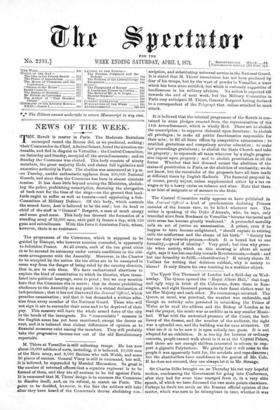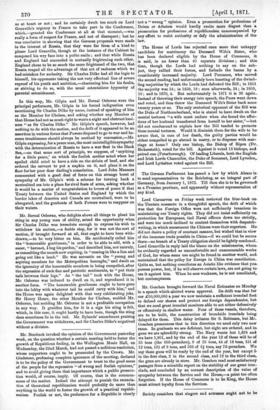Sir Charles Dilke brought on on Thursday his not very
hopeful motion, condemning the Government for going into Conference, after they had for some time emerged from it, in a very able speech, of which we have discussed the two main points elsewhere. Perhaps he dwelt too much on the Russian official opinion of the matter, which was sure to be triumphant in tone, whether it was
so at heart or not ; and he certainly dwelt too much on Lord Granville's urgency to France to take part in the Conference, which,—grauted the Conference at all at that moment,—was really a form of respect for France, and not of disrespect ; but he was conclusive in showing that the German proposals were made in the interest of Russia, that they were far from of a kind to please Lord Granville, though at the instance of the Cabinet he composed his wry face into a polite smile ; and that while Russia and England had succeeded in mutually frightening each other, England chose to be so much the more frightened of the two, that Russia reaped all the advantage of that act of rashness which we had mistaken for audacity. Sir Charles Dilke had all the logic to himself, his opponents taking the not very effectual line of severe reproof of his youth and ambition,—chastening him for his faults, or striving to do so, with the usual ostentatious hypocrisy of parental astonishment.

































